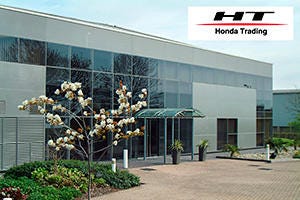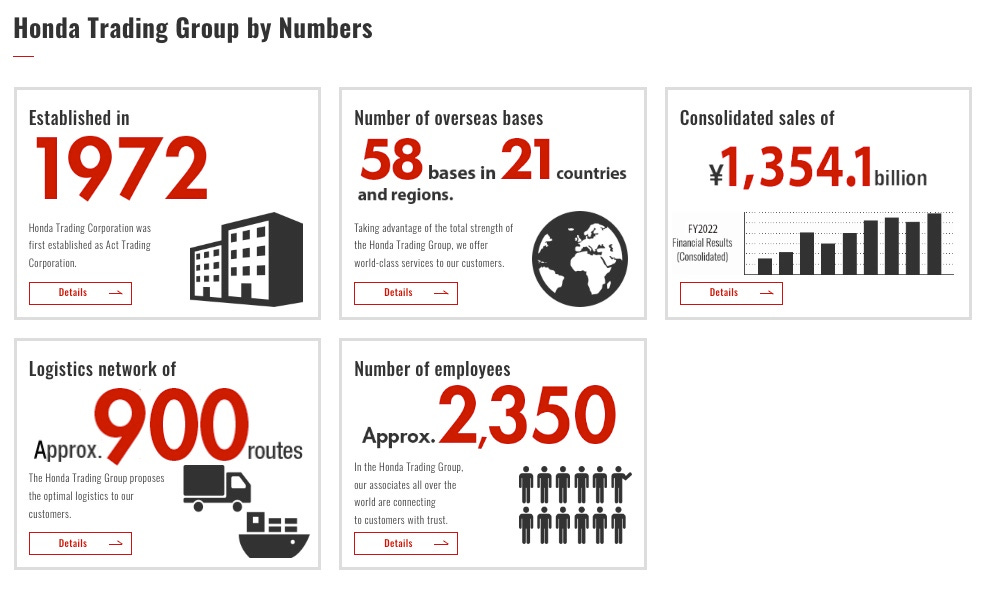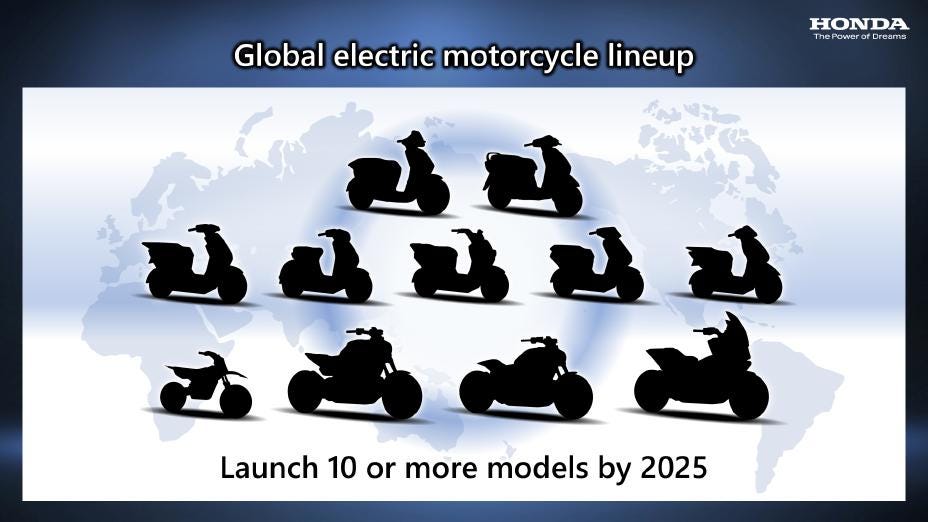Honda Trading makes first African startup investment
Who is Honda Trading?, Investment into Unchorlight Kenya, Follow-up on Japan investment into Africa
I was surprised with the feedbacks on previous post on “Japan Investments into Africa - 2022 Trends, Issues & Opportunities”, how it brought new dialogues to the table. Some audience likes to focus on macro and infrastructure (ie: Japan in comparison to China), and others more towards Private sector & VC/Startups - I appreciate every feedback, especially since the both approaches/perspectives are becoming more sophisticatedly intertwined.
Just recently, Honda Trading announced their investment into Unchorlight Kenya Limited (UNK), who operates a rent-to-own motorcycle retail business in Kenya. We all know Toyota & Toyota Tsusho, and how active they are on the African continent (Toyota Tsusho is the most active of 4,000 public companies in Japan). But who is Honda Trading and what brings them to Africa?
Honda Trading - Sole trading partner of Honda Group
When working with Japanese corporates, it makes tremendous difference whether you take time to understand its history (which is also why cultural aspect is critical). Some of you may have heard of “Sogo-Shosha” and “Zaibatsu” system in Econ classes (see “Warren Buffett's Japan trade: The changing world of 'sogo shosha'“). Just as Toyota has Toyota Tsusho as its trading arm, Honda also has Honda Trading as its trading arm. The key difference is that Toyota Tsusho is officially independent from Toyota and it is publicly traded (Ticker code: 8015.JP), though Toyota Group still holds 21.69% of the stock. With that said, through global strategic partnerships, Toyota, Hino, and Isuzu are still all Toyota Tsusho’s key customers.
Honda Trading, on the other hand, is a consolidated subsidiary of Honda Group, therefore shares objectives much closer to its parent company (=100% owned by Honda). Since inception in 1972, Honda Trading has been in the forefront for Honda Group when it comes to expanding into new markets. As seen in the 2 charts below (from Honda Trading HP), Honda Trading has established extensive networks over past 50 years, and its business-line goes far beyond 2-wheelers & 4-wheelers, covering everything from Soy Beans to Material Recycling.
As you can tell from the map, African continent (as well as Australia) has been the last missing piece, making this investment into Unchorlight Kenya worth flagging.
Unchorlight Limited Kenya (UNK): Rent-to-own finance service
UNK has launched a rent-to-own model finance service in September 2021, and has contributed to vehicle sales and job creation for approximately 245 BodaBoda riders in Kenya. UNK is founded by Mr. Renji Morita, and has successfully raised funding from Honda Trading and Skylight Consulting.
Honda’s mid-term plan - 2022 initiatives
As an ex-Equity Analyst, I have an odd obsession in staring at companies’ earnings report and stock movements…and especially when it comes to company like Honda, it seems to me just a matter of time for management to question how Africa fits into their mid-term plan (MTP).
Based on publicly available information, below are some of the key announcements just in 2022 that reflects Honda’s longer term vision.
Honda plans to introduce 10 new EV bikes by 2025 (representing 15% of total unit sales) - source
Japanese consortium (ENEOS, Honda, Kawasaki, Suzuki, Yamaha) for EV “BaaS (Battery as a Service)” - source
Honda sets up Battery Sharing subsidiary in India - source
Sony and Honda team up to develop and sell EVs - source
Though Africa has not yet hit the tape with Honda, consistently the company is pivoting towards “EV” and “Emerging Markets”. In the context of Africa, it would make sense to expect 2-wheeler EV, Battery Swapping infrastructure, Asset Financing to be of interest in growth markets (versus 4-wheeler EV), whilst simultaneously looking for longer-term footprint in the auto parts and manufacturing segments.
Shift to local production - Mitsubishi Motors
This August, Mitsubishi Motors, along with Isuzu and Toyota, announced that they will be producing vehicles local within Africa (for Mitsubishi, this is after 10 year hiatus). What this means is that other supply chain firms (Denso, Koito, NIDEC, Bridgestone, Toyo Rubber, Yokohama Rubber, etc) will all have a reason to build channels towards African market.
Note, this is exactly what occurred when the Big 3 auto firms (Toyota, Honda, Nissan) first based their operations in Los Angeles, California in 1960s, where relevant industry players (shippers, banks, auto parts, ad agencies, trading firms, etc) all tapped into the market. Understandably, it isn’t an apple-to-apple comparison, but if history does rhyme, Japan’s interest of leveraging its experience in building hardware and manufacturing capacities, may dovetail with Africa’s interest for sustainable inter-continental supply-chain.
Goodbye Tokyo 🇯🇵, Hello Nairobi 🇰🇪
I will be working out of Nairobi, Kenya for rest of the year and into next year working for a VC and Japanese Corporates. For those in Africa, looking forward to catching up with everyone!
Please feel to reach out via whatsapp/linkedin!








